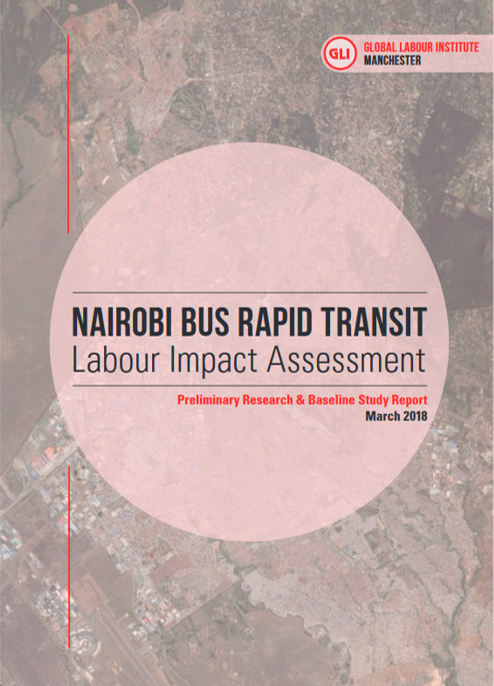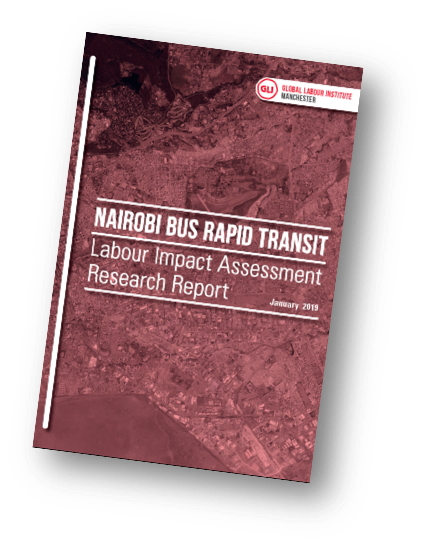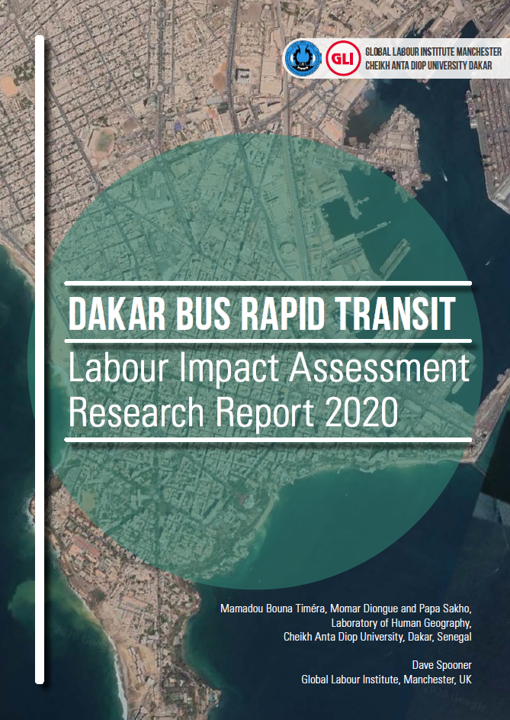GLI currently supports the International Transport Workers’ Federation’s (ITF) Our Public Transport campaign, concentrating on work with ITF affiliated unions in Africa representing informal workers, and assessing the impact of “Bus Rapid Transit” in African cities.
 In 2018, GLI was commissioned to undertake preliminary research and write a baseline study report to assess:
In 2018, GLI was commissioned to undertake preliminary research and write a baseline study report to assess:
- The likely impact and implications of BRT for workers in Nairobi
- Good practice examples of engagement and inclusion of workers’ organisations in the development of BRT policy and implementation by local, national and international decision-makers
- The nature of the worker groups consulted
- Consulation or negotiation processes
- Outcomes of the inclusion of workers’ representatives in the design and operation of BRT
Click here to read this report.
 The response to the preliminary report provided invaluable feedback and led to proposals for further research which were developed in the full Nairobi Bus Rapid Transit Labour Impact Assessment Research Report, published in January 2019. This report assesses to a fuller extent, the potential impact of the introduction of BRT on Nairobi’s informal transport (‘matatu’) workforce, and seeks to encourage the active engagement of matatu workers’ representatives in shaping a transport system for the city.
The response to the preliminary report provided invaluable feedback and led to proposals for further research which were developed in the full Nairobi Bus Rapid Transit Labour Impact Assessment Research Report, published in January 2019. This report assesses to a fuller extent, the potential impact of the introduction of BRT on Nairobi’s informal transport (‘matatu’) workforce, and seeks to encourage the active engagement of matatu workers’ representatives in shaping a transport system for the city.
Click here to read this report.
As part of the ongoing work of the ITF’s Our Public Transport (OPT) programme, GLI was commissioned to write a negotiating guide for trade unions on Bus Rapid Transit. The Bus Rapid Transit (BRT) and the Formalisation of Informal Transport Trade Union Negotiating Guide is now available to view and download. This negotiating guide attempts to develop policy options for transport unions to consider when planning negotiations with agencies on the introduction of BRT and formalisation of the informal transport industry. It is primarily designed for ITF affiliated transport unions in Africa and Asia where BRT is rapidly expanding, but is hopefully of value to all trade unions organising in urban transport.
Click here to read this report.
 As a contribution to the Our Public Transport programme, GLI was also commissioned to undertake research into the potential impact of Bus Rapid Transit (BRT) on the livelihoods and working conditions of those dependent on Dakar’s urban transport industry, particularly those employed in the informal economy. The research was undertaken in partnership with the Laboratoire de Géographie Humaine at the University of Dakar (UCAD), and Women in Informal Employment: Globalizing & Organizing (WIEGO).
As a contribution to the Our Public Transport programme, GLI was also commissioned to undertake research into the potential impact of Bus Rapid Transit (BRT) on the livelihoods and working conditions of those dependent on Dakar’s urban transport industry, particularly those employed in the informal economy. The research was undertaken in partnership with the Laboratoire de Géographie Humaine at the University of Dakar (UCAD), and Women in Informal Employment: Globalizing & Organizing (WIEGO).
The Dakar Bus Rapid Transit: Labour Impact Assessment Research Report is now available to view and download in English and French. both. It considers the potential impact of Bus Rapid Transit (BRT) on the livelihoods and working conditions of those dependent on Dakar’s urban transport industry, particularly those employed in the informal economy. The report is based on desk research, survey questionnaires, focus group discussions and in-depth interviews with workers. The research aimed to capture data on the workforce in the context of the development of BRT in Dakar, build a profile of workforce demographics; occupations; work experience and qualifications; employment terms and relationships; working hours and conditions; earnings; and major issues experienced at work. It also aimed to determine the level of workers’ awareness of BRT, ideas for improvements and reform, and attitudes towards the introduction of BRT.
Click here to read this report in English.
Click here to read this report in French.
As part of GLI’s continued work with the ITF’s Our Public Transport campaign, further research into the impact of BRT will be undertaken in Abidjan, Côte d’Ivoire.

